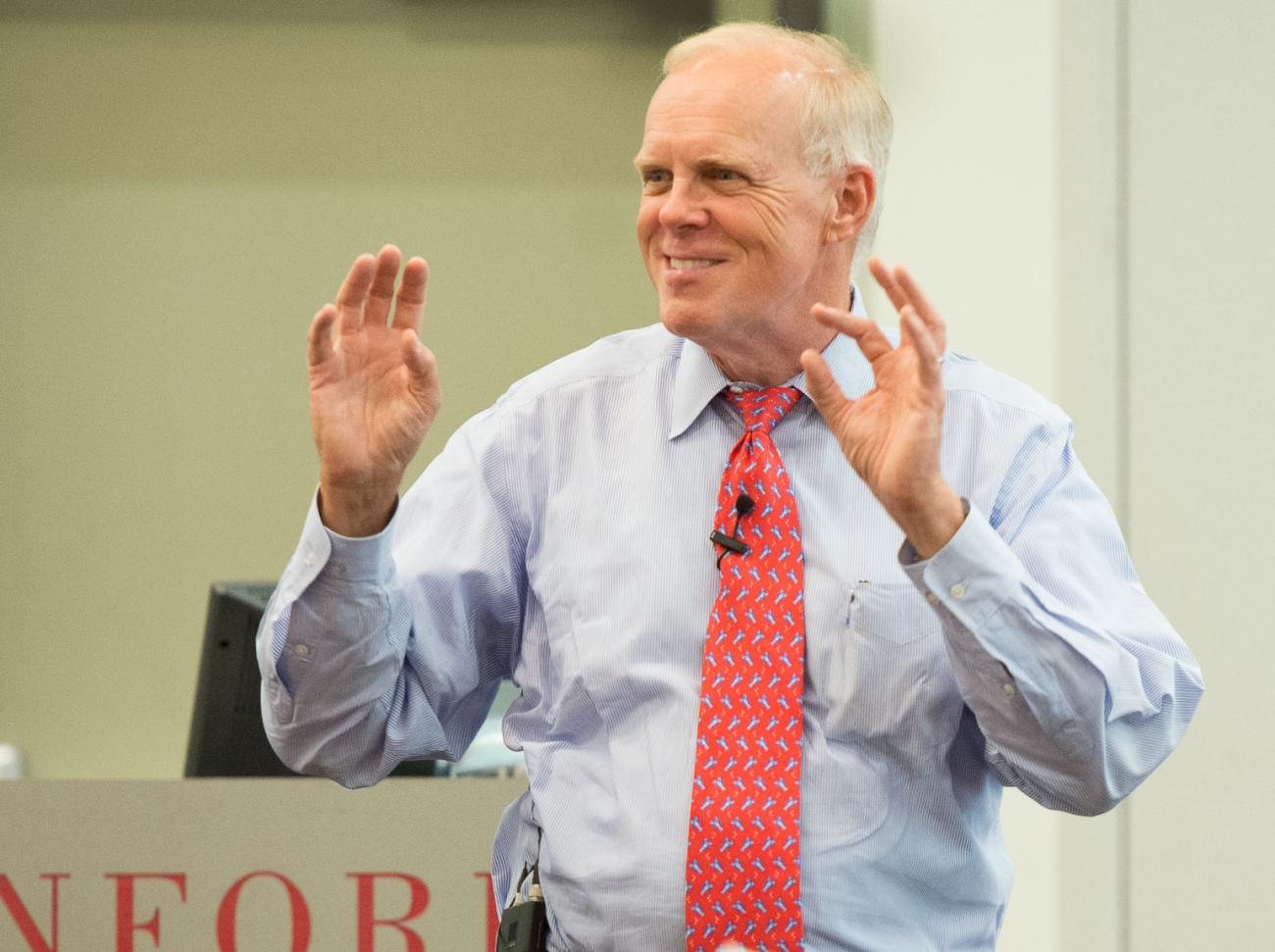
Stanford President John Hennessy urges teachers to become leaders and advocates
In a speech to visiting high school teachers on Tuesday, Stanford President John Hennessy acknowledged that teaching has become a more challenging profession and called for the members of his audience to take a leadership role in raising the profile of the education profession.
"You are engaged in one of the absolutely most important things that occurs in this country – education of the next generation," Hennessy said. "It's unfortunately become, in our society, a contribution which has been dramatically undervalued."
Hennessy spoke to nearly 100 teachers in the inaugural Hollyhock Fellowship for Teachers program, which supports high school educators from underserved public and charter schools nationwide for two years with an intensive institute on campus during two summer sessions and year-round online coaching run by the Center to Support Excellence in Teaching at the Stanford Graduate School of Education.
"I am a product of two great school teachers – my mother, who taught me to love to read, and my wife, who helped me learn all the people skills that are really necessary for survival and particularly short in lots of people who come from an engineering background," Hennessy said to laughter from the audience.
But the teaching profession has changed over the past 50 years, he said. With more English language learners and rising income inequities, the student population presents more challenges and the global job market has become much more competitive.
"When I went to school, you didn't work hard, you didn't study hard, you flunked out and we didn't worry about you because there were manufacturing jobs" that paid a middle-class income, he said. But now, he added, to live the American dream, people need a good education.
During a Q&A session, Hennessy stressed, to applause, that teachers should be recognized as professionals. Now, he said, universities pay more to educate scientists than science educators, even though the latter have to master not only the discipline but also the skill of being a great teacher.
But though institutions have a lot to fix, Hennessy said that teachers also have a role in changing the perception of teaching. He encouraged his audience to inspire others to see educators as professionals and to work toward developing a strong leadership voice in education policy issues.
"Teachers have to stand up and say, 'we will be the professionals in the classroom, we are the people delivering education to the next generation,' " he continued. "We can't replace parents or other parts of the system, but we have a vital role and responsibility to play in educating these people."
Then, he said, "We can get on the track to moving teachers to the pinnacle they should be held to in our society."
Also in attendance were teachers from the ChemEx2: Chemistry Experience and Experiments for Learning program, another program run by the CSET.
Shara Tonn is an intern at the Stanford News Service.



